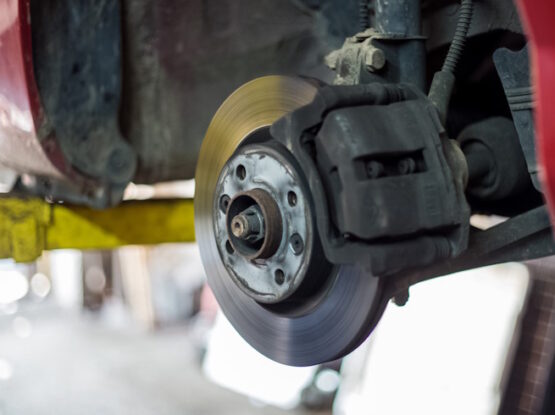Experiencing a shake or vibration in your car when you press the gas pedal can be more than just uncomfortable; it’s a sign that something’s not right. Many drivers accept this shaking as a quirk of their vehicle, but it’s actually an issue that shouldn’t be ignored. Whether it happens at high speeds, low speeds, or consistently throughout, understanding the cause is the first step to fixing it.
The reasons your car trembles upon acceleration can range from the simple to the complex, signaling minor fixes or hinting at major repairs down the line. Broken engine mounts, tire issues, or deeper engine problems could all be culprits. Recognizing these signs early can save you from more serious and expensive issues in the future.
Don’t let a shaking car disrupt your drive. Identifying why your vehicle vibrates when accelerating is crucial, and with the right knowledge, you can address the problem effectively. Let’s dive into the common causes and their solutions, ensuring a smoother ride ahead.
10 Possible Causes for Vibrations When Accelerating
Experiencing vibrations or noticing your car shakes when accelerating can be concerning. It signals that your vehicle might be facing one of several issues that need timely attention. Understanding the potential causes can guide you toward the appropriate fix, ensuring your car runs smoothly once again. Here are ten possible culprits behind why your car shakes when you accelerate.
Worn Out Spark Plugs
Spark plugs play a pivotal role in your car’s engine by igniting the air/fuel mixture. Over time, they can wear out or get fouled, leading to inefficient firing. This inefficiency causes misfires during acceleration, resulting in vibrations. Replacing old spark plugs restores engine performance and eliminates the shakiness.
Unbalanced Tires
If your tires are not evenly weighted, it can cause your car to shake at various speeds, especially noticeable when accelerating. Getting your tires balanced by a professional ensures even distribution of weight around the wheel, rectifying the imbalance and smoothing out your ride.
Stuck Brake Calipers
Brake calipers that fail to release properly can cause friction on your wheels even when you’re not braking. This continuous drag not only affects your car’s acceleration but can also lead to noticeable shaking. Addressing this issue often involves repairing or replacing the affected calipers.
A Bent Axle or Driveshaft
Accidents or hitting a curb hard can bend your car’s axle or driveshaft, leading to vibrations when accelerating. This scenario requires a professional inspection, as driving with a bent component can cause further damage to your vehicle.
A Worn CV Joint
The CV (Constant Velocity) joint is essential for transferring power to the wheels while accommodating the up and down motion of your suspension. A worn CV joint will cause vibrations under acceleration and needs replacing to restore smoothness to your drive.
A Bent Wheel
A bent wheel doesn’t just affect your car’s aesthetics; it can lead to significant vibrations when accelerating. Wheels can become bent from potholes or curb impacts. A wheel alignment and possibly replacing the damaged wheel will solve the issue.
Old or Damaged Tires
Tires that are worn out or have suffered damage can cause your vehicle to shake when accelerating. Regular inspections are crucial to spot signs of wear or damage early, preventing vibrations and maintaining a safe driving experience.
Loose Wheel Nuts
Loose wheel nuts compromise the stability of your wheels, leading to shaking, especially when accelerating. This can be a simple fix, involving tightening the nuts to the correct torque specification.
Bad Motor Mounts
Motor mounts secure your engine to the car’s chassis, absorbing vibrations. When these mounts wear out, the engine’s vibrations go unchecked, leading to noticeable shaking when you accelerate. Replacing bad motor mounts is key to resolving this issue.
Transmission Issues
Problems with your car’s transmission, such as low fluid levels or internal damage, can cause your car to shake when you accelerate. Transmission issues are complex and require a professional’s expertise to diagnose and repair.
By identifying these common causes, you’re better equipped to understand why your car shakes when accelerating. Addressing these issues promptly can prevent more significant problems down the road, ensuring a safer, smoother driving experience.
Is it Safe to Drive When Your Car is Shaking?
Driving with a car that shakes when accelerating can be more than just uncomfortable; it might be a sign that your vehicle is in need of urgent attention. The safety of driving under these conditions largely depends on the severity and the root cause of the shaking. Minor vibrations might not pose an immediate threat, but should not be ignored, as they could signify the beginning of a more serious issue.
Understanding the underlying reasons why your car shakes when you accelerate is essential. If the cause is tied to worn-out spark plugs or a misaligned suspension system, the risk might be lower initially but ignoring these signs can lead to more significant problems down the line, including potential safety hazards. On the other hand, issues like damaged engine mounts or serious transmission problems can pose an immediate risk to your safety and that of others on the road.
When your car shakes upon acceleration, it’s not just a nuisance—it’s a warning. It indicates that certain parts of your vehicle are not functioning properly and could dramatically affect your car’s performance. This detriment to your vehicle’s performance could put you and your passengers in danger, especially when rapid acceleration is necessary, such as merging onto a highway.
To ensure your safety, it’s crucial to have your car inspected by a professional as soon as you notice any vibrations or shaking. Mechanics can accurately diagnose the problem and repair any damages before they escalate into more severe issues. Remember, the cost of ignoring such symptoms can far outweigh the expense of early repairs.
While your car might still be drivable with minor shaking when accelerating, it’s not advisable to do so without understanding the cause. Prioritizing a timely check-up not only ensures your safety but also helps maintain your car’s optimal performance and longevity. Don’t overlook the importance of addressing any form of shaking or vibrations promptly to avoid potential accidents or costly repairs in the future.
Ask The Professionals at Paul’s Auto Repair
Your car’s performance and safety are paramount. That’s why it’s essential not to overlook any signs of shaking when you accelerate. Whether it’s something as simple as worn spark plugs or as complex as transmission issues, getting to the root of the problem early can save you from potential danger and expensive repairs down the line. At Paul’s Auto Repair, our team of experts is ready to provide a thorough inspection and the necessary fixes to keep your car running smoothly. Don’t wait until minor vibrations turn into major problems. Let us help you maintain your vehicle’s performance and extend its lifespan. Remember, your safety on the road is our top priority.



